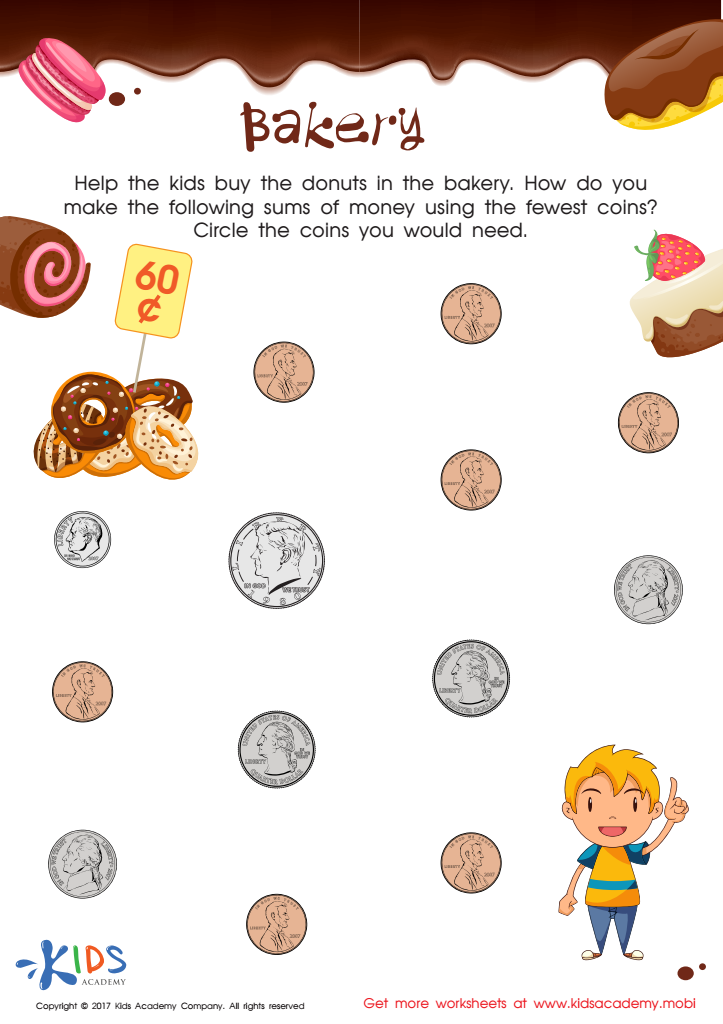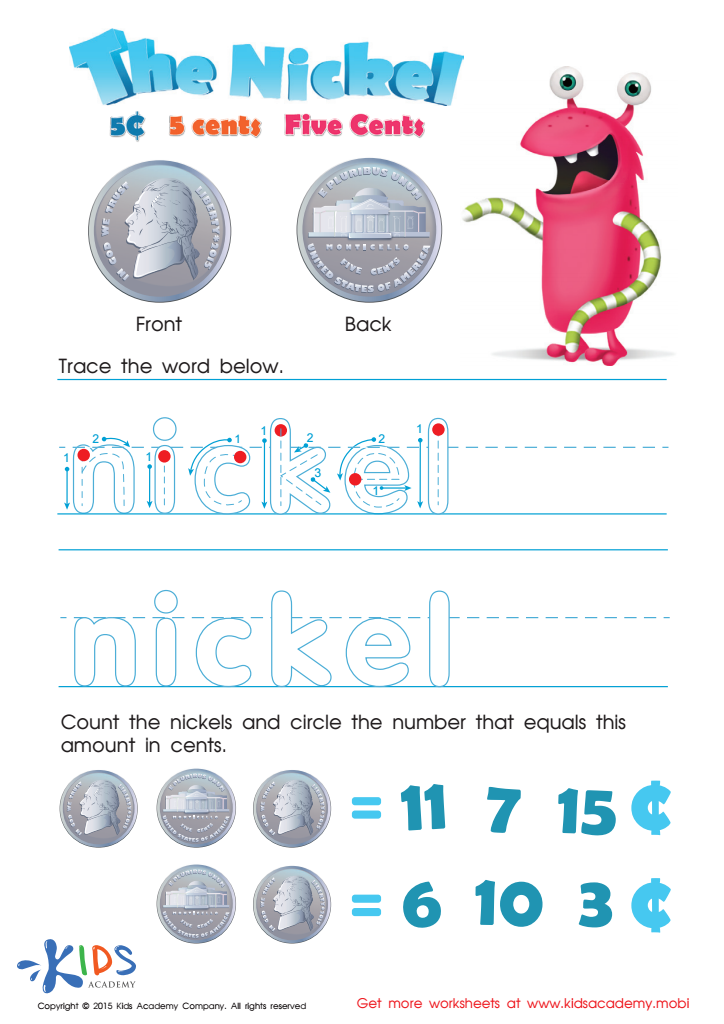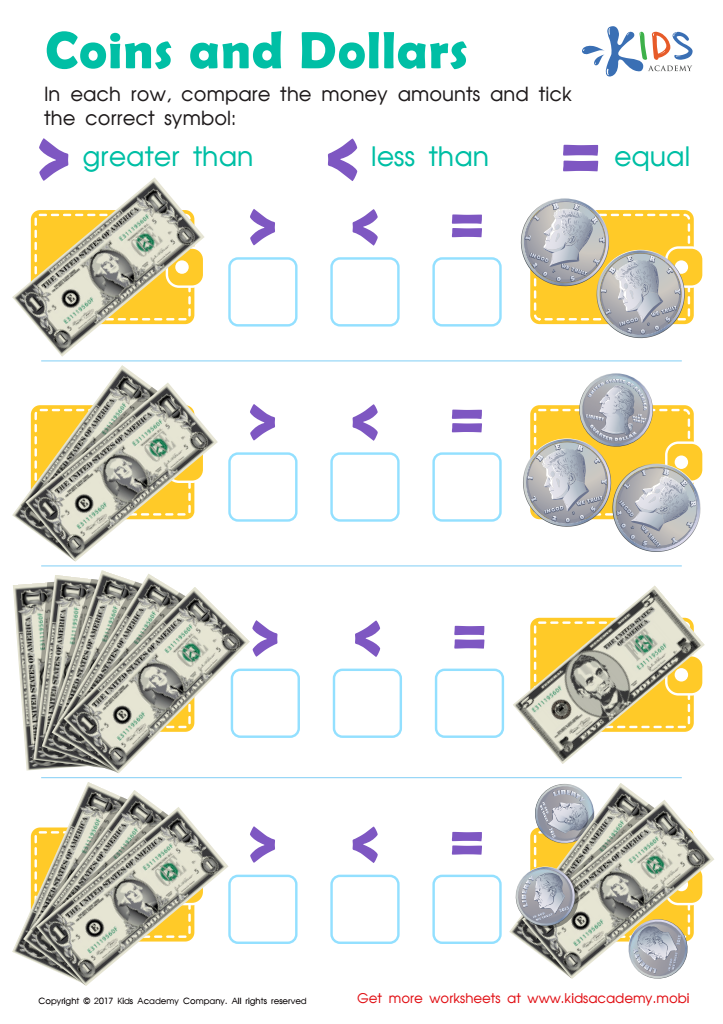Understanding currency Extra Challenge Worksheets for Ages 6-9
3 filtered results
-
From - To
Our "Understanding Currency Extra Challenge Worksheets for Ages 6-9" offer an engaging way for young learners to grasp the fundamentals of money management. Perfectly tailored for early grade students, these worksheets encourage hands-on practice with identifying coins, bills, and performing basic currency-related tasks. Through fun and interactive challenges, children will enhance their math skills while developing a practical understanding of currency. Enhance your child’s financial literacy with these expertly crafted worksheets designed to make learning both enjoyable and educational. Ideal for classroom use or at-home reinforcement, these worksheets are an excellent resource for growing young minds.


Counting Coins Worksheet


Five Cents or the Nickel Money Worksheet


Money: Coins Dollars Printable
Understanding currency and introducing financial concepts through activities or challenges is crucial for children ages 6-9. At this critical developmental stage, children are beginning to grasp mathematical operations and are highly impressionable when it comes to forming lifelong habits and skills. By engaging with currency-based challenges, they not only acquire practical math skills such as addition, subtraction, multiplication, and division but also gain an understanding of the value of money and the importance of saving, budgeting, and wise spending.
Parents and teachers should care because early financial literacy can set the stage for future financial stability. As adults, these children will need to navigate a complex economic world, make smart financial decisions, and avoid common pitfalls like debt accumulation. Encouraging familiarity with currency reinforces economic vocabulary, helps in recognizing different denominations, and fosters confidence in handling money. An increased comfort level with money early on translates into capable and astute adults.
Moreover, these financial challenges enhance problem-solving skills, critical thinking, and numeracy. They can be fun, interactive, and contextually relevant, making learning engaging. Through games or supervised activities, children learn real-life applications of math, ensuring that they appreciate its usefulness beyond the classroom setting. Thus, fostering financial literacy at a young age is an investment in their future success.
 Assign to My Students
Assign to My Students





.jpg)












